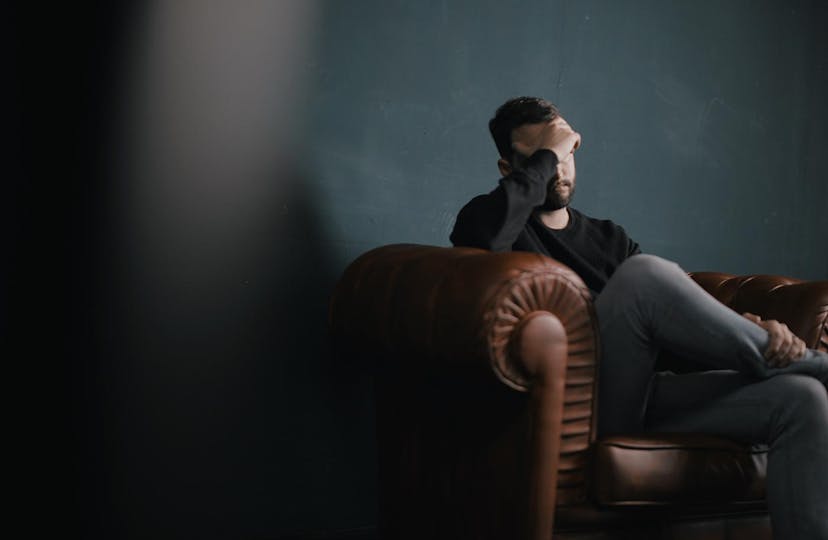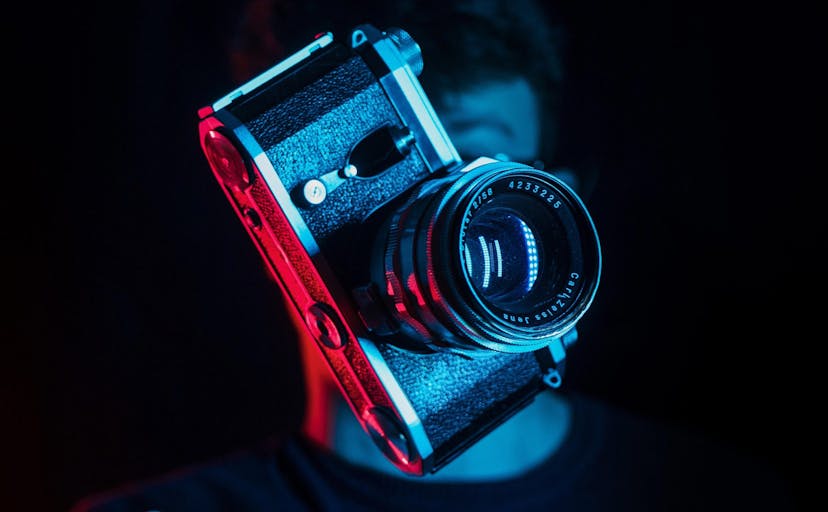
15 Bad Habits That Can Cause Vision Lose
The human eye is a marvel of nature—a finely tuned organ that allows us to experience the world in all its vibrant detail. Despite its importance, eye health often takes a backseat in our daily routines. In our fast-paced, screen-heavy world, many people overlook the simple habits that protect and sustain their vision.
As an eye surgeon, I see the consequences of neglected eye care every day. Vision loss can be gradual and insidious, often caused by habits we don’t think twice about. But the good news is that many of these issues are preventable. By understanding the risks and making small changes, we can preserve the gift of sight for years to come.
Let’s explore 15 bad habits that can lead to vision loss—and how to avoid them.
The Overlooked Gift of Sight
1. Skipping Regular Eye Exams
Far too many people overlook the importance of regular eye exams. Even if you’re not experiencing noticeable symptoms, eye conditions like glaucoma or macular degeneration can develop without warning. I’ve seen patients who assumed their vision was fine, only to discover they were at risk of irreversible damage. Regular eye exams allow us to detect these issues early and help prevent serious vision loss. The earlier we catch these problems, the more we can do to preserve your sight.
2. Overusing Digital Devices
In today’s world, digital screens are everywhere. But staring at a computer, tablet, or phone for extended periods can lead to digital eye strain, causing dryness, discomfort, and even blurred vision. I had a patient, a young professional, who was spending 12+ hours a day on a computer. She came to me complaining of headaches and fatigue, not realising that her eye strain was the cause. Reducing screen time, taking regular breaks, and adjusting your screen settings can help mitigate the effects of digital eye strain.
3. Not Wearing Sunglasses Outdoor
Protecting your eyes from harmful UV rays is essential for long-term eye health. Without proper protection, UV radiation can cause cataracts, macular degeneration, and even eye cancer. A case that stands out was a middle-aged man who didn’t wear sunglasses despite frequent outdoor activities. Over time, he developed early cataracts, which could have been avoided. Sunglasses aren’t just a fashion accessory—they’re vital for protecting your eyes from damage caused by the sun.
4. Sleeping in Contact Lense
While contact lenses are a great way to correct vision, wearing them overnight can be a recipe for disaster. I once treated a patient who frequently slept in his lenses. Over time, this led to a severe eye infection that required immediate treatment. The lack of oxygen flow to the cornea can cause dryness, irritation, and even permanent scarring. Always remove your contact lenses before bed and give your eyes a chance to breathe.

5. Rubbing Your Eyes Frequently
We all do it—rub our eyes when we’re tired or stressed. But this seemingly harmless habit can lead to irritation, injury, or even corneal damage. I had a patient who rubbed his eyes so often that he developed a condition called keratoconus, where the cornea thins and bulges. Rubbing your eyes can exacerbate this issue, so it’s crucial to resist the urge. If your eyes are itchy or dry, try using lubricating eye drops instead of rubbing.
6. Ignoring Symptoms of Eye Strain
Eye strain isn’t just uncomfortable—it can also signal more serious issues. Blurry vision, headaches, and neck pain can all be signs that something’s wrong. I recall a patient who suffered from chronic headaches and blurry vision but didn’t think to visit an eye doctor. Upon examination, we found he had undiagnosed astigmatism, which was causing his symptoms. Ignoring these warning signs can delay the treatment you need, so always consult an eye care professional if you’re experiencing any of these issues.
7. Poor Nutrition and Hydration
What you eat directly impacts your eye health. Diets rich in fruits, vegetables, and omega-3 fatty acids help protect against age-related vision loss. I’ve seen cases where poor nutrition contributed to conditions like dry eye syndrome or macular degeneration. One patient, a woman in her 50s, had difficulty with her night vision due to a lack of vitamin A in her diet. Staying hydrated and consuming eye-healthy nutrients like leafy greens and fish can make a world of difference.
8. Smoking and Eye Health
Smoking is one of the leading causes of preventable eye disease. It increases the risk of cataracts, macular degeneration, and optic nerve damage. I had a patient who had been smoking for over 20 years and developed advanced macular degeneration at an early age. Quitting smoking can significantly reduce your risk of these conditions and improve overall eye health. If you’re a smoker, it’s never too late to quit, and your eyes will thank you for it.
9. Inadequate Lighting While Reading
Reading or working in dim light can strain your eyes, leading to discomfort and potential vision problems over time. I had a young student who came in complaining of blurred vision and headaches. After discussing his study habits, I discovered he was reading in very low light for hours at a time. Proper lighting can reduce eye strain and prevent long-term damage. Make sure your reading space is well-lit, and take breaks every 20 minutes to give your eyes a rest.

10. Using Expired or Old Eye Makeup
Expired makeup can lead to eye infections or irritations. I’ve seen several patients with eye infections caused by using old mascara or eyeliner that had been sitting in their makeup bags for months. Bacteria can thrive in old cosmetics, which can transfer to the eye. Always check the expiration dates of your makeup and replace products regularly, especially those that come into contact with your eyes.
11. Not Managing Chronic Conditions
Conditions like diabetes and high blood pressure can have a significant impact on your eye health. Uncontrolled diabetes, for example, can lead to diabetic retinopathy, a condition that damages the blood vessels in the retina and can lead to blindness. I had a patient with poorly managed diabetes who experienced sudden vision loss due to retinopathy. Regular eye exams and proper management of chronic conditions are crucial in maintaining good eye health.
12. Excessive Screen Time Without Breaks
Spending hours staring at a screen without taking breaks can lead to digital eye strain, but the real danger is how it affects the eyes over time. One of my patients, a gamer, was experiencing dry eyes and blurry vision after long sessions. We discussed the 20-20-20 rule: every 20 minutes, take a 20-second break and look at something 20 feet away. This simple habit can help reduce strain and prevent long-term vision issues caused by excessive screen time.

13. Sleeping Without Removing Eye Makeup
Not removing your eye makeup before bed can cause serious eye irritation or infection. I’ve seen several cases of blepharitis (inflammation of the eyelids) caused by makeup residue building up over time. One patient, a makeup artist, didn’t realise how much damage her daily makeup routine was causing. Make sure to thoroughly remove all eye makeup before sleeping to keep your eyes healthy and free from irritation.
14. Delaying Treatment for Eye Injuries
Ignoring an eye injury can have serious consequences, including permanent vision loss. I had a patient who accidentally scratched his cornea but delayed seeking treatment, thinking it wasn’t serious. The injury became infected, requiring extensive treatment. If you experience an eye injury, it’s essential to seek immediate medical attention, no matter how minor it seems. Early intervention can prevent lasting damage and protect your vision.
15. Skipping Protective Eyewear During Activities
Whether you’re playing sports, doing DIY projects, or working with chemicals, protective eyewear is essential. I treated a patient who was injured during a recreational basketball game when a ball hit him in the eye. Without proper eyewear, even minor accidents can lead to severe eye trauma. Make sure to wear protective glasses or goggles during activities that pose a risk to your eyes, such as playing contact sports or working in environments with flying debris.
Trust My-iClinic
These habits, though seemingly small, can have a significant impact on your vision over time. By making simple adjustments to your daily routine and being mindful of your eye health, you can avoid many of the preventable causes of vision loss. Don't wait for symptoms to show up—take charge of your eye health today.
If you need expert attention or professional advice, why not book an appointment with us? You’ll be greeted with a smile and receive personalised care and advice.
Find out more by Speaking to our team









